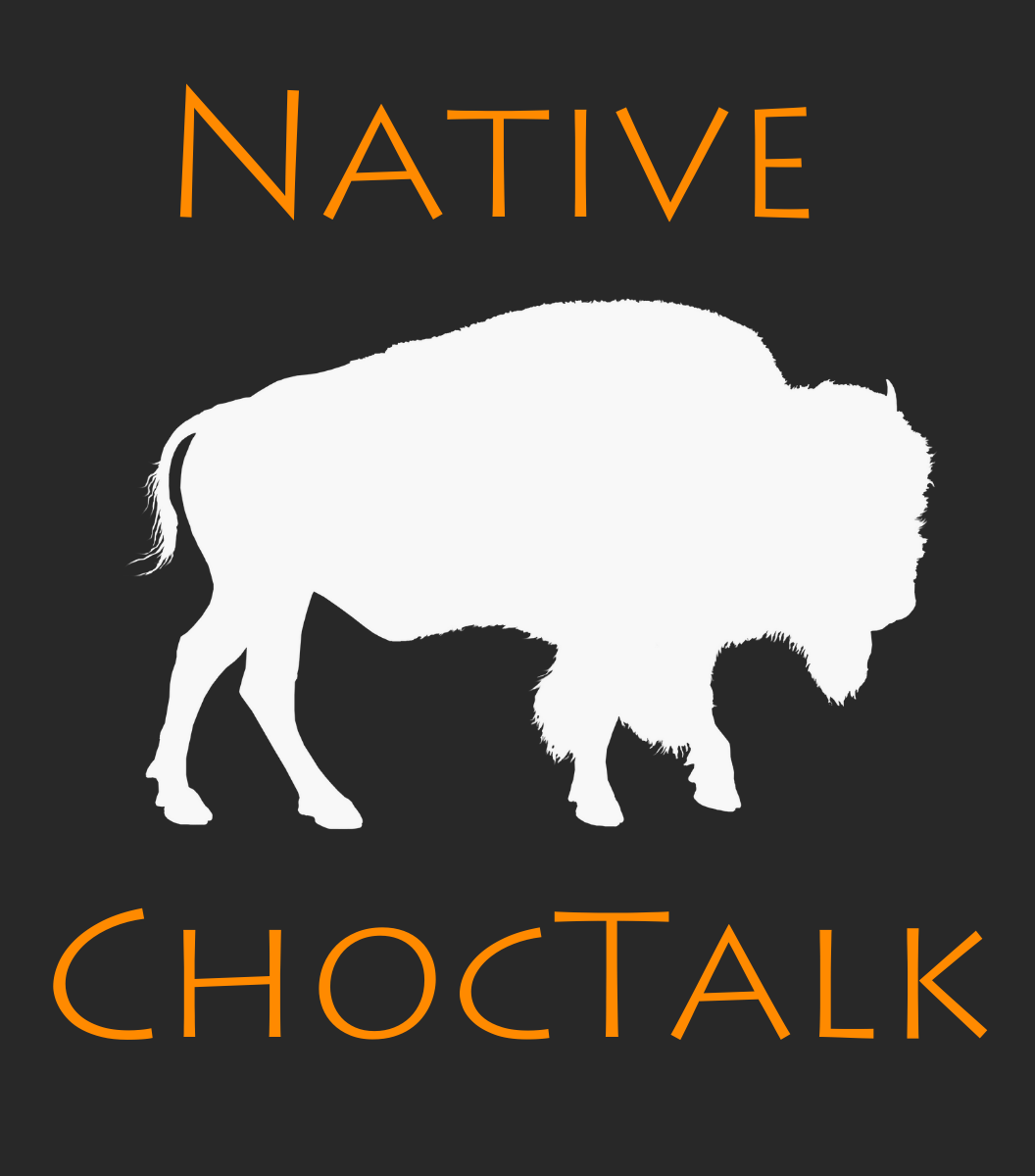Episodes
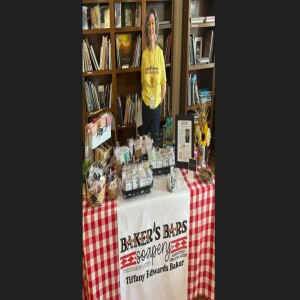
4 days ago
4 days ago
PART 3
In this new season of Native ChocTalk, I sat down with Tiffany Baker, the heart and hands behind Bakers Bar Soapery!
Tiffany shares her powerful journey of tracing her Choctaw ancestors — all connected by one common thread: the land. From uncovering family allotments and the deep sentiment of holding onto family land, to the tangled stories of district agents, guardianship scams, and the feisty squabbles between Choctaw mammas — with a bit of Tamaha, Oklahoma town gossip sprinkled in too!
Tune in to hear how Tiffany weaves her family’s past into her modern-day business, creating soaps that carry the love, land, and legacy of her people — and maybe a bit of Tamaha mischief too.
Listen now and get inspired by the strength that runs through the land — and the families who keep it alive.
Native ChocTalk Facebook page: https://www.facebook.com/nativechoctalkpodcast
All Podcast Episodes: https://nativechoctalk.com/podcasts/
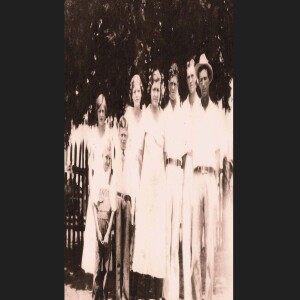
4 days ago
4 days ago
PART 2
In this new season of Native ChocTalk, I sat down with Tiffany Baker, the heart and hands behind Bakers Bar Soapery
Tiffany shares her powerful journey of tracing her Choctaw ancestors — all connected by one common thread: the land. From uncovering family allotments and the deep sentiment of holding onto family land, to the tangled stories of district agents, guardianship scams, and the feisty squabbles between Choctaw mammas — with a bit of Tamaha, Oklahoma town gossip sprinkled in too!
Tune in to hear how Tiffany weaves her family’s past into her modern-day business, creating soaps that carry the love, land, and legacy of her people — and maybe a bit of Tamaha mischief too.
Listen now and get inspired by the strength that runs through the land — and the families who keep it alive.
Native ChocTalk Facebook page: https://www.facebook.com/nativechoctalkpodcast
All Podcast Episodes: https://nativechoctalk.com/podcasts/
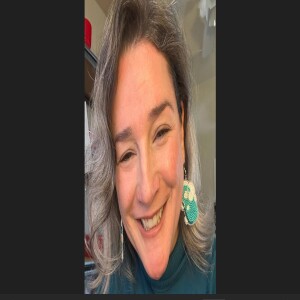
4 days ago
4 days ago
PART 1
In this new season of Native ChocTalk, I sat down with Tiffany Baker, the heart and hands behind Bakers Bar Soapery!
Tiffany shares her powerful journey of tracing her Choctaw ancestors — all connected by one common thread: the land. From uncovering family allotments and the deep sentiment of holding onto family land, to the tangled stories of district agents, guardianship scams, and the feisty squabbles between Choctaw mammas — with a bit of Tamaha, Oklahoma town gossip sprinkled in too!
Tune in to hear how Tiffany weaves her family’s past into her modern-day business, creating soaps that carry the love, land, and legacy of her people — and maybe a bit of Tamaha mischief too.
Listen now and get inspired by the strength that runs through the land — and the families who keep it alive.
Native ChocTalk Facebook page: https://www.facebook.com/nativechoctalkpodcast
All Podcast Episodes: https://nativechoctalk.com/podcasts/
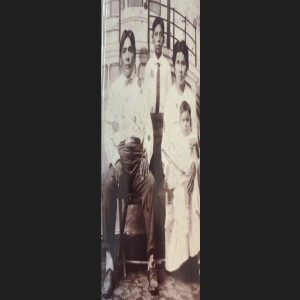
Friday Jun 13, 2025
Friday Jun 13, 2025
It started with a murder...but what followed was silence. And for one Choctaw family, that silence lasted for generations.
In this gripping two-part series, we dive into a mystery that stretches across time - a broken bloodline, a forgotten story, and the journey to uncover the truth. It begins with the unsolved killing of Adam Wilkins, who served as a Choctaw Indian Police and interpreter — and the great-grandfather of my guest, Amy Lemmer.
Still, as we’ve seen in true Choctaw fashion, this isn’t just a story about loss - it’s about legacy. Because Amy’s family didn’t let that tragedy define them.
In the previous series, her father, Woodrow Wilkins, Jr., gave us a window into a nearly 100-year life — telling stories of his childhood, his first picture show, his service in the military, and the deep cultural threads that tie their family to Choctaw history.
Now, Amy steps in to pick up where the silence began - and perhaps, where healing begins, too.
Native ChocTalk Facebook page: https://www.facebook.com/nativechoctalkpodcast
All Podcast Episodes: https://nativechoctalk.com/podcasts/
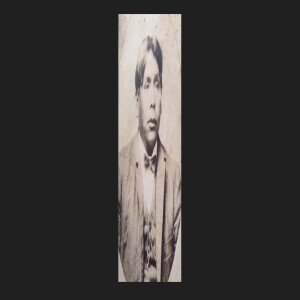
Thursday Jun 12, 2025
S8, E8, Pt1: Amy Lemmer (Choctaw) and The Mystery of Adam Wilkins, Indian Police
Thursday Jun 12, 2025
Thursday Jun 12, 2025
It started with a murder...but what followed was silence. And for one Choctaw family, that silence lasted for generations.
In this gripping two-part series, we dive into a mystery that stretches across time - a broken bloodline, a forgotten story, and the journey to uncover the truth. It begins with the unsolved killing of Adam Wilkins, who served as a Choctaw Indian Police and interpreter — and the great-grandfather of my guest, Amy Lemmer.
Still, as we’ve seen in true Choctaw fashion, this isn’t just a story about loss - it’s about legacy. Because Amy’s family didn’t let that tragedy define them.
In the previous series, her father, Woodrow Wilkins, Jr., gave us a window into a nearly 100-year life — telling stories of his childhood, his first picture show, his service in the military, and the deep cultural threads that tie their family to Choctaw history.
Now, Amy steps in to pick up where the silence began - and perhaps, where healing begins, too.
Native ChocTalk Facebook page: https://www.facebook.com/nativechoctalkpodcast
All Podcast Episodes: https://nativechoctalk.com/podcasts/
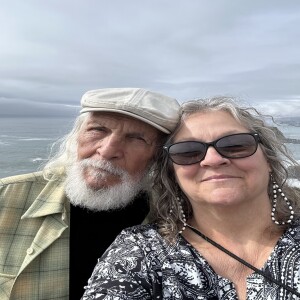
Saturday May 31, 2025
S8, E7 Part 3: Wagon Days & War Stories: Woodrow Wilkins, Choctaw Veteran
Saturday May 31, 2025
Saturday May 31, 2025
Part 3
This May, as we celebrate Choctaw veterans, I’m proud to feature Woodrow Wilkins on Native ChocTalk — a proud Choctaw veteran whose life is a blend of service, culture, and resilience.
From stories of military service to memories of wagon days, wild onion dinners, Choctaw hymns, flower sack dresses, and watching his first picture show, Woodrow brings the old days to life with heart and humor.
But why was Woodrow “kept hidden”? We dig into the surprising backstory behind his journey.
This series is a tribute to all our veterans and the beautiful culture they defend.
Don’t miss this powerful conversation that weaves together story telling, legacy, laughter, and love for our people.
Native ChocTalk Facebook page: https://www.facebook.com/nativechoctalkpodcast
All Podcast Episodes: https://nativechoctalk.com/podcasts/
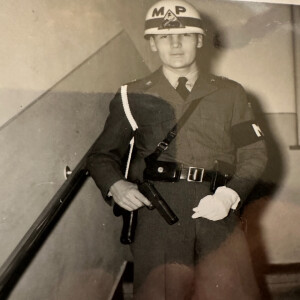
Friday May 30, 2025
S8, E7 Part 2: Wagon Days & War Stories: Woodrow Wilkins, Choctaw Veteran
Friday May 30, 2025
Friday May 30, 2025
PART 2
This May, as we celebrate Choctaw veterans, I’m proud to feature Woodrow Wilkins on Native ChocTalk — a proud Choctaw veteran whose life is a blend of service, culture, and resilience.
From stories of military service to memories of wagon days, wild onion dinners, Choctaw hymns, flower sack dresses, and watching his first picture show, Woodrow brings the old days to life with heart and humor.
But why was Woodrow “kept hidden”? We dig into the surprising backstory behind his journey.
This series is a tribute to all our veterans and the beautiful culture they defend.
Don’t miss this powerful conversation that weaves together story telling, legacy, laughter, and love for our people.
Native ChocTalk Facebook page: https://www.facebook.com/nativechoctalkpodcast
All Podcast Episodes: https://nativechoctalk.com/podcasts/

Friday May 30, 2025
S8, E7 Part 1: Wagon Days & War Stories: Woodrow Wilkins, Choctaw Veteran
Friday May 30, 2025
Friday May 30, 2025
This May, as we celebrate Choctaw veterans, I’m proud to feature Woodrow Wilkins on Native ChocTalk — a proud Choctaw veteran whose life is a blend of service, culture, and resilience.
From stories of military service to memories of wagon days, wild onion dinners, Choctaw hymns, flower sack dresses, and watching his first picture show, Woodrow brings the old days to life with heart and humor.
But why was Woodrow “kept hidden”? We dig into the surprising backstory behind his journey.
This series is a tribute to all our veterans and the beautiful culture they defend.
Don’t miss this powerful conversation that weaves together story telling, legacy, laughter, and love for our people.
Native ChocTalk Facebook page: https://www.facebook.com/nativechoctalkpodcast
All Podcast Episodes: https://nativechoctalk.com/podcasts/
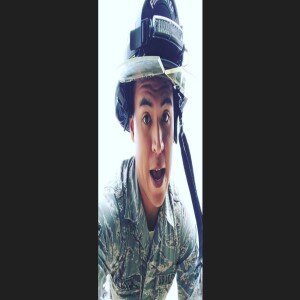
Tuesday May 20, 2025
Tuesday May 20, 2025
Part 2
This month, for Memorial Day and Military Appreciation Month, we honor our Native American veterans.
Did you know our Native people serve at the highest rate per capita of any group in the U.S.?
Yet, Native veterans also face some of the highest suicide rates, often twice the national average. Factors like historical trauma, limited access to culturally relevant care, and the lingering effects of service contribute to this crisis.
For younger Native male veterans, the risk is especially high, making culturally rooted, community-based support critical. Programs that reconnect veterans to nature, culture, and tradition are helping restore hope.
I sat down with Choctaw veteran Teyler Williston, who continues his family’s legacy of service through his work in Native veteran mental health.
His story spans generations—from his Choctaw Lighthorseman Grandpa to Teyler’s Air Force Firefighting and his role in the Choctaw Honor Guard.
If you’re a Native Veteran looking for support, please see the following information: https://www.choctawnation.com/services/warrior-wellness/
Native ChocTalk Facebook page: https://www.facebook.com/nativechoctalkpodcast
All Podcast Episodes: https://nativechoctalk.com/podcasts/
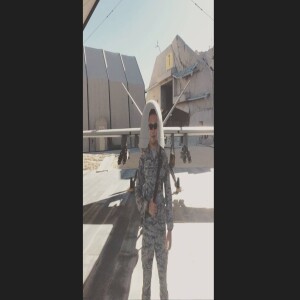
Tuesday May 20, 2025
Tuesday May 20, 2025
This month, for Memorial Day and Military Appreciation Month, we honor our Native American veterans.
Did you know our Native people serve at the highest rate per capita of any group in the U.S.?
Yet, Native veterans also face some of the highest suicide rates, often twice the national average. Factors like historical trauma, limited access to culturally relevant care, and the lingering effects of service contribute to this crisis.
For younger Native male veterans, the risk is especially high, making culturally rooted, community-based support critical. Programs that reconnect veterans to nature, culture, and tradition are helping restore hope.
I sat down with Choctaw veteran Teyler Williston, who continues his family’s legacy of service through his work in Native veteran mental health.
His story spans generations—from his Choctaw Lighthorseman Grandpa to Teyler’s Air Force Firefighting and his role in the Choctaw Honor Guard.
Native ChocTalk Facebook page: https://www.facebook.com/nativechoctalkpodcast
All Podcast Episodes: https://nativechoctalk.com/podcasts/

